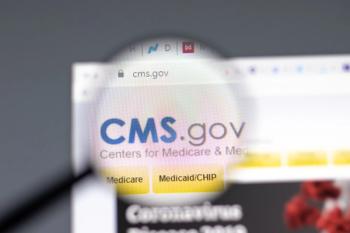
Technology
Latest News

Latest Videos

CME Content
More News

These advances are designed to improve uptake of biomarker-driven cancer care and reduce treatment delays.

As drug denials increase, experts discuss the importance of optimizing data to keep up with these changes and implementing artificial intelligence (AI) to reduce the burden on providers and ensure patient access to care and treatment.

Erin Weber, MS, CAQH, is hopeful that artificial intelligence (AI) will empower people rather than replace them.

The electronic health record (EHR)–based symptom inventory identified symptom prevalence and associated comorbidities, but no ovarian cancers were diagnosed during the study period.

While artificial intelligence (AI) use in health care is currently limited to administrative tasks, Erin Weber, MS, explains that expanding its adoption will require greater collaboration, transparency, and trust among stakeholders.

A group of experts discusses the use of continuous glucose monitoring (CGM) technology in diabetes and its transformative potential in managing the disease.

With deadlines looming in 2026 and 2027 for compliance with the CMS Advancing Interoperability and Improving Prior Authorization Final Rule, a survey indicates a concerning lack of readiness among payers and providers to meet the new requirements for data sharing.

Laura Bobolts, PharmD, BCOP, senior vice president of clinical strategy and growth at OncoHealth, shares how health care leaders are advancing value-based care through improved data strategies, real-world evidence, and AI-driven efficiencies, without losing the human touch.

Taxing imports to the US could spell major consequences for health care prices, innovation, and access, as a great amount of medical supplies and ingredients are manufactured overseas.

This article reviews underlying barriers to health care access and discusses how a value-based diabetes care model could improve patient outcomes and reduce long-term costs.

As new Federal Communications Commission rules take effect April 11, 2025, mPulse CEO Bob Farrell explains how health organizations can stay compliant while building patient trust through transparency and personalized engagement.

Experts agree that telemedicine continues to majorly impact health care post pandemic.

Dan Nardi, MS, CEO of Reimagine Care, claims that on-demand cancer treatment via telehealth is the future of oncology care delivery.

After fine-tuning, the VGG16 convolutional neural network outperformed other deep learning models in 2 of 3 key classification tasks.

Mobile self-management programs like that offered by Hello Heart can benefit employers and patients alike as they seek to manage and prevent heart disease.

This commentary explores the current state, challenges, and potential of artificial intelligence (AI) in health care revenue cycle management, emphasizing collaboration, data standardization, and targeted implementation to enhance adoption.

Strategies to enhance virtual care through quality assurance frameworks, technological innovation, and provider support were laid out in a pair of posters presented at the recent AMGA Annual Conference.

Panelists explored responsible, patient-centered use of artificial intelligence (AI) in cardiovascular care at the American College of Cardiology 2025 Annual Scientific Session.

Geoffrey Rutledge, MD, PhD, of HealthTap, envisions a future where all patients have a virtual care doctor as their first point of contact with the health care system.

Implementing artificial intelligence (AI) has transformed clinicians' and health systems' ability to screen for and distinguish forms of cardiorenalmetabolic disease.

Although the widespread adoption of remote patient monitoring during the COVID-19 pandemic expanded care access, particularly for underserved communities, challenges persist in sustaining this access.

Geoffrey Rutledge, MD, PhD, of HealthTap, emphasizes that when care can be delivered virtually, it is more efficient and effective to do so.

Documentation efficiency was higher among younger and male clinicians.

A real-world analysis showed a link between continuous glucose monitor (CGM) distribution channel and outcomes for patients with diabetes.

Lipoprotein(a) [Lp(a)] plays a key role in assessing cardiovascular risk, making awareness efforts equally essential for prevention and early intervention.
















